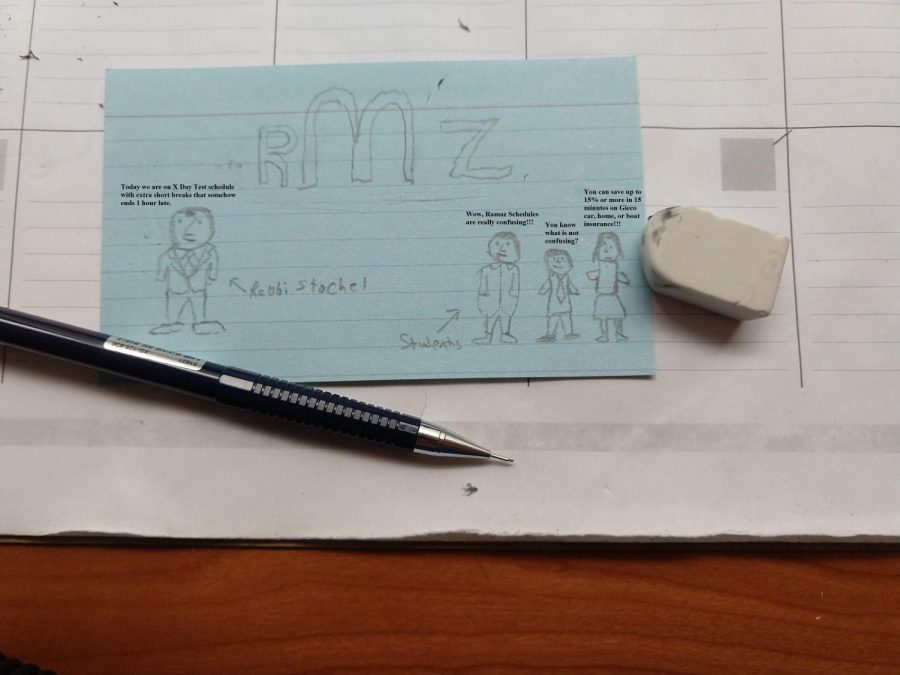Why Can’t Students Campaign On Their Own for G.O.?
Although students enjoy the process of voting for class president and student government, or as Ramaz students know it as, the G.O., there is not much of a platform to base a vote on. Rather, students running for position face strict guidelines concerning how they may campaign.
This year’s G.O. handbook states that any candidate who does one of the following is subject to disqualification: spending money on campaigning, posting on social media, printing flyers/posters, or any other means of campaigning unapproved by the G.O supervisor. In fact, the only way students were allowed to campaign during this year’s elections was through an essay or video released to all voters for the primary elections at the same time as their competitors’. Thus, no independent campaigning was allowed.
Rabbi Dov Pianko, who is the G.O. supervisor, and in charge of all elections, said that it never crossed his mind. Simply, as Rabbi Pianko put it, “in my eight years, [of working at Ramaz], no one’s ever asked about the campaign process for students or to reevaluate the process.” According to Rabbi Pianko, when he came to Ramaz and took control of the elections, the handbook was a mess and included very little information regarding the election process. So, after consolidating all the information that was there, the idea was never revisited because no one ever cared enough.
The people best in position to make changes to the campaign rules, the G.O., have never had it on their minds because they have won their respective elections. It is no concern to an election winner as to how the election system works if they are already elected. And since the election rules are obviously determined before anyone is elected, students do not feel like they are in any position to change them then.
The only update to the list of campaign no-no’s is flyers, which were added to the list after the 2017/2018 school year. Rabbi Pianko cited reasons such as inappropriate posters or lack of enthusiasm around them as the reason for their dismissal.
He also questioned posters’ effectiveness, because, as of the 2017/2018 school year, Schoology had already become the main form of communication for the school. And even before that, social media sites like Facebook had taken the Ramaz student body by storm. Rabbi Pianko made clear that the current rules were created long before Schoology was implemented into Ramaz and before Snapchat and Instagram existed, the two most prevalent social media platforms among Ramaz students. Additionally, Rabbi Pianko pointed out that clubs have used flyers and posters in the past, but that too was overtaken by the convenience and practicality of Schoology.
Students running for positions in government have expressed their disapproval of the current system. “I did not feel like I was able to campaign enough because there were a lot of confusing rules and I did not want to risk being disqualified,” said EJ Singer ’22, who ran for Associate Vice President of Communications and lost. “I wish there were less rules so people running could express why the students running should vote for them before the assembly speeches.”
Julia Feit ’22 ran for class president of the Junior grade this September and won. “I didn’t understand why I wasn’t allowed to post on my social media to promote my campaign,” she said. “I did text people right before voting which proved to be effective.” To put the latter statement into context, though, it is objectively harder to reach out to as many students as possible in the entire student body than to so in a single grade.
One of the campaign rules that Rabbi Pianko said will not change is not allowing students to spend money. He said that spending money for campaigns inevitably leads to competing students trying to one-up the other in order to secure as many votes as possible, (and there have been many instances which show this).
Rabbi Pianko also said that the spending issue is one reason why campaign rules have been a neglected topic. “For a few years, things got out of hand, and instead of thinking of better guidelines so [campaigning] would be fairer, it was easier to remove the problems without real analysis.”
Since those few years, no one has asked the question, or at least asked it loudly enough, on why students can’t campaign. Because of that, there has been no initiative to change.
Going forward, Rabbi Pianko is happy to hear arguments for change. “I think the current campaign process needs to be reevaluated,” he said. “I’m very much open to suggestions from G.O. members and non-G.O. members alike about what we can do to make it better.”
A committee of students have made it their mission to reevaluate the rules of campaigning for future years and hope to use student feedback to reform the campaign guidelines.



